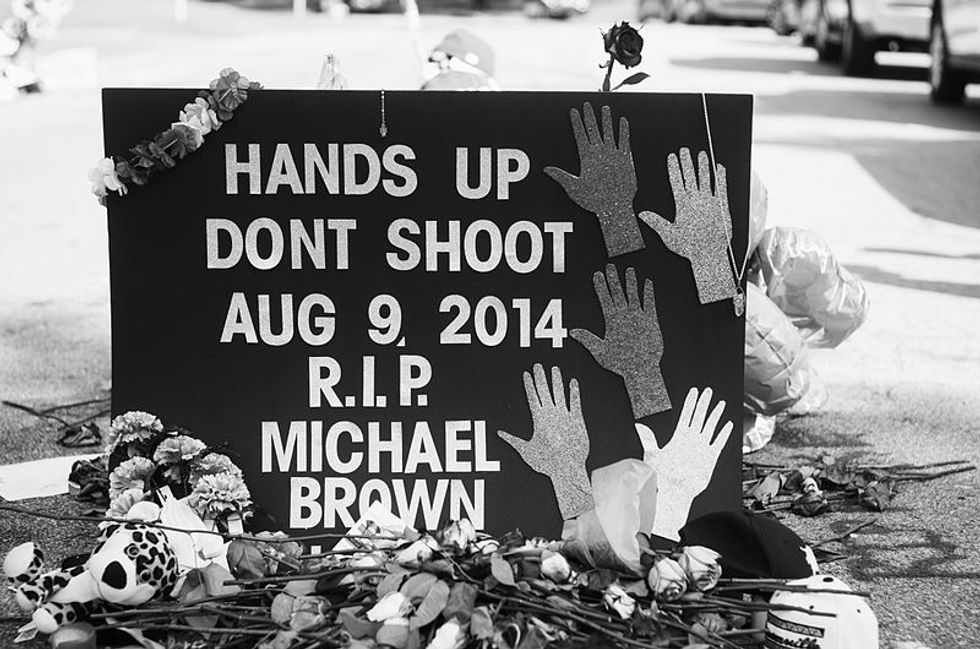This article was written on Trayvon Martin's 24th birthday. To his family, you are all in our hearts. To Sybrina Fulton, you changed my life. I will continue to fight.
I had to change my mourning into a movement, my pain into purpose
- Gwen Carr
Anti-Black violence is pervasive and results in, not only the actual death of Black people but also soul murder and a slow deterioration that is often felt by the Black women that love them. Mourning is turned into movements as Black women are forced to bury their loved ones as American media demonizes them. Pain is turned into purpose when Black women fight to protect the memory of the people they have lost. Sorrow kills. Racism kills.
I chose to live, number one. I chose to move to my next chapter because if my son had died and I had died also, and I was just walking around the Earth not doing anything, then I would be dead too... I was reluctant to, you know, even speak. Even to be the voice of my son, you know, which seems like that's the natural thing to do, is to speak for Trayvon, who's not here, but I didn't want to. I just felt so weak and hopeless and helpless… God really had to work on me to strengthen me to get me to speak up for other people. To speak up for my son. To speak up for myself.
- Sybrina Fulton
Moving forward after losing a child is difficult for any parent. But America's role in perpetuating Black death and the sheer improbability of justice compounds the loss to dangerous degrees. In "Sorrow as Artifact: Radical Black Mothering in Times of Terror", Dr. Christen Smith observed that Black women adopt a "mothering" framework through language that stresses care-taking, collective healing/sorrow, and fear for the Black people of today and children of tomorrow. This mothering (social and biological) creates a unique relationship between Black women and the fight against violence and terror.
"You're taking on the burdens of every Black person and making them your own. You're brave for doing that and I love you for doing that but you need to take some time for yourself."
-Timothy Nelson
As a Black woman, I take on burdens of my brothers and sisters to the point of having extreme anxiety and panic attacks. I did not choose activism. Organizing and caring (things one would consider activism) are my methods of survival, but are also the very things killing me.
Research shows that, for Black students, higher levels of political activism may exacerbate experiences of microaggressions and relate to more stress and anxiety compared with Black students who are less politically involved. When I think about the physical manifestations of stress and pain associated with activism, I think about Eric and Erica Garner.
Get away [garbled] for what? Every time you see me, you want to mess with me. I'm tired of it. It stops today. Why would you...? Everyone standing here will tell you I didn't do nothing. I did not sell nothing. Because every time you see me, you want to harass me. You want to stop me [garbled] selling cigarettes. I'm minding my business, officer, I'm minding my business. Please just leave me alone. I told you the last time, please just leave me alone. — Eric Garner
On July 17, 2014, at approximately 3:30 p.m.,Eric Garner was approached by a plain clothes police officer, Justin Damico, in front of a beauty supply store at 202 Bay Street in Tompkinsville, Staten Island. This was not the first time he had been harassed by police officers. Eric Garner had just broken up a fight, which may have caught the attention of the nearby police. The NYPD claimed that officers had previously targeted Garner for selling untaxed, individual cigarettes in the area. Using a deadly chokehold, Daniel Pantaleo murdered Garner as he yelled "I can't breathe."
At 24 years old, Erica Garner became a fighter. Erica's death at 27 years old was more than a heart attack; it was a heartbreak caused the immense pain and trauma of losing her father. She, like many Black activists, fought state sanctioned anti-Black violence and was killed by its lethal physical manifestations.
Erica Garner's death came a year after the death of Venida Browder, mother of Kalief, who killed himself after being held on Rikers Island for three years for a crime he did not commit. Erica was quoted as saying "[Venida Browder] died of a broken heart. She had heart problems because she kept on fighting for her son. Like, I'm struggling right now, with the stress and everything, 'cause this thing, it beats you down. The system beats you down until you can't win. ... I felt the same pain that my father felt on that day when he was screaming, 'I can't breathe.'"
We are fighting for our lives within a society that is built on our corpse. Black women internalize their fight physically as they witness the death of victims that resemble their own children, or, in the cases described above, witness direct violence enacted on their families. I urge everyone to think about the way that racism manifests physically as attacks on heart and soul. Black Lives Matter.
- Slow death: Is the trauma of police violence killing black women? ›
- Why black mothers live in fear of the police | The Seattle Times ›
- What Police Brutality Does to a Black Parent's Mental Health - Tonic ›
- Police Brutality / Black Mothers / Justice Seekers | Fusion ›
- Police Violence: Black Mothers Speak Out - YouTube ›
- 'We know what it is to bury a child' – the black mothers turning ... ›
- The invisible victims of police violence—black mothers ... ›
- From the Civil Rights Movement to Black Lives Matter: Honoring ... ›

















